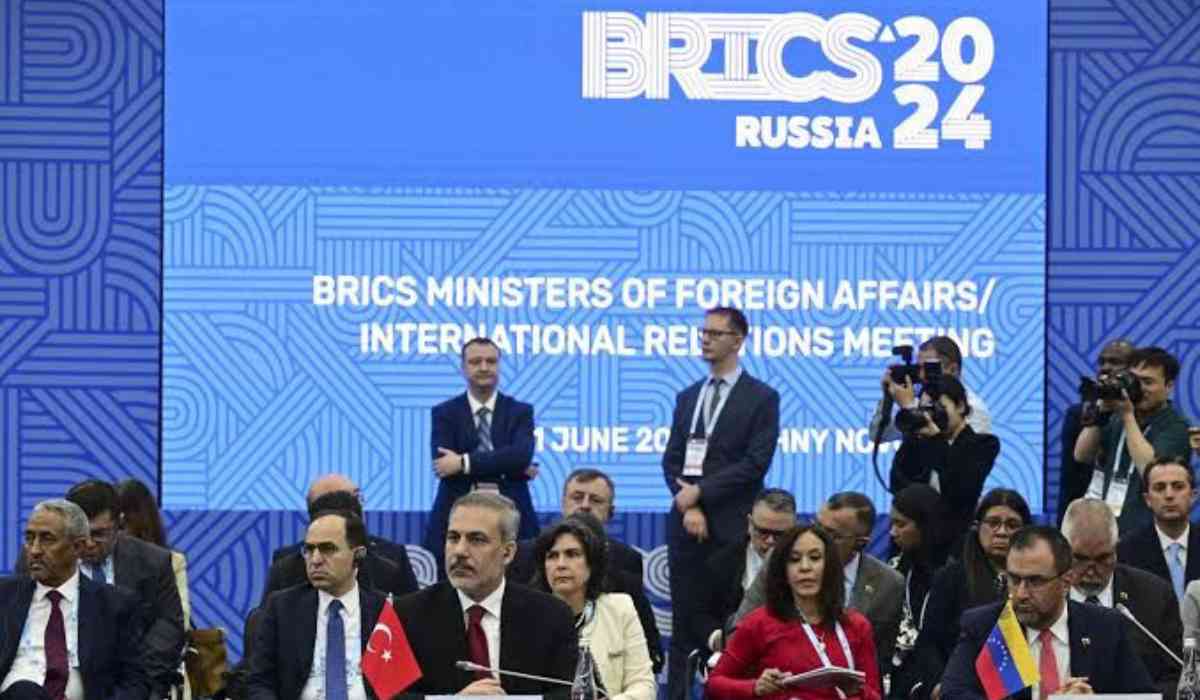On June 10, 2024, BRICS Ministers of Foreign Affairs held an official meeting in Nizhny Novgorod, Russia, gathered to reaffirm their commitment to cooperation and mutual understanding on issues varying from regional to global.
For this meeting, Egypt, Ethiopia, Iran, Saudi Arabia, and the UAE joined Brazil, Russia, India, China, and South Africa as full-fledged BRICS members. These nations joined core members in BRICS expansion which was done in 2023.
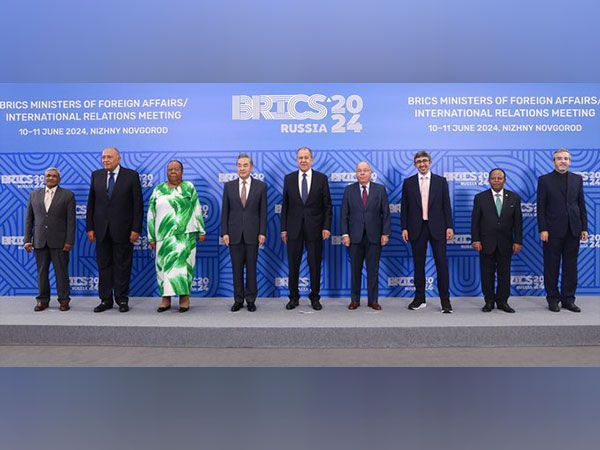
The meeting was attended by a number of notable guests, including China's Wang Yi, Egypt's Sameh Shokri, Brazil's Mauro Vieira, UAE's Abdullah bin Zayed Al Nahyan, South Africa's Naledi Pandor, Foreign Minister of International Relations and Cooperation, and Egypt's Wang Yi. There were also delegates from other "friends of BRICS" nations present.
India, a longstanding member of BRICS, welcomed the new members into the bloc. Despite the absence of External Affairs Minister S. Jaishankar, the Indian delegation, led by senior diplomat Dammu Ravi, expressed wholehearted support for the expanded BRICS.
Secy (ER) Dammu Ravi led the Indian delegation at the BRICS Foreign Ministers‘ Meeting hosted by the Russian Federation on 10 June in Nizhny Novgorod.
A significant meeting in the format of expanded BRICS family. India whole heartedly welcomes the new membership. #BRICSSpirit pic.twitter.com/XCYD00JgAS— Randhir Jaiswal (@MEAIndia) June 10, 2024
Meeting Chaired by Russia
Russia took over the chairmanship of BRICS on January 1, 2024.
Russian Foreign Minister Sergey Lavrov, chairing the meeting, emphasised the significance of BRICS, he said,
“The expansion of BRICS is a clear confirmation of the process of forming a multipolar world order.”
The Russian Minister also criticized Western efforts to hold onto power and impede the development of a multipolar world. He charged that the West was using financial pressure and sanctions as economic "weapons" to sway the decisions of independent states.
He compared this to the cooperation model of the BRICS countries, which he defined as being founded on the values of equality, respect for one another, transparency, and consensus. Lavrov declared, "BRICS is driving forward the wind of change," highlighting the organization's expanding role in tackling global issues.
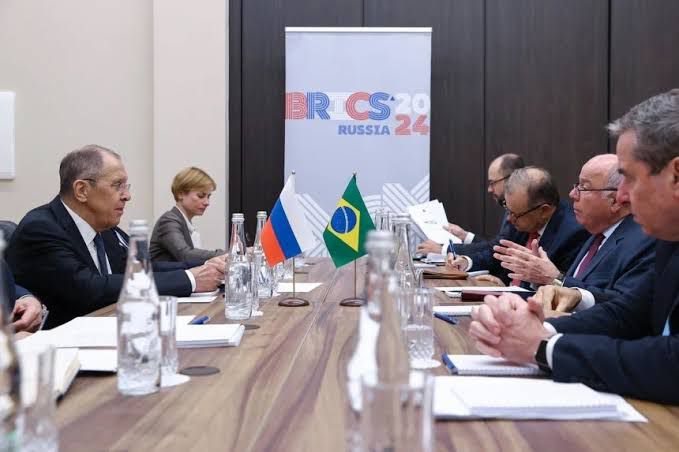
The meeting reaffirmed the three pillars of BRICS cooperation: politics and security, economy and finance, and cultural and people-to-people exchanges.
Here are the Top 5 discussions:
Trade in local currencies
Central to the discussions was the enhanced use of local currencies in trade and financial transactions between BRICS countries, a move aimed at reducing dependency on the US dollar and promoting economic sovereignty among member states.
The Foreign Ministers also restated the demand from COP27 to ensure that reforms to international financial institutions will give priority to broadening the scope of financing and making resources more easily accessible. They believed there would be tremendous success with the 2025 International Bank for Reconstruction and Development shareholder review.
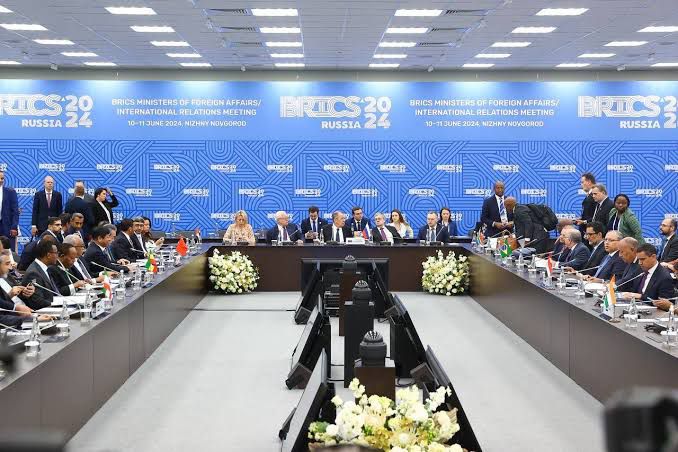
Developing the New Development Bank
In the Joint Statement, the Ministers urged the New Development Bank to adhere to the member-led and demand-driven principle, use creative financing strategies to raise capital from a variety of sources, strengthen capacity building and knowledge exchange, particularly with developing country knowledge sources, support member nations in achieving the SDGs, and further enhance efficiency and effectiveness to fulfill its mandate and become a premier multilateral development institution for EMDCs.
They vowed to work together to transform the New Development Bank into a brand-new, equitable multilateral development bank for the twenty-first century and pushed the Bank to carry out its mandate and duties in line with the Agreement on the New Development Bank.
In accordance with the NDB-approved policies, "the Ministers expressed their support to the further expansion of the NDB membership and early consideration of applications of BRICS Member countries," the statement continued.
G-20: Forum for Developing Countries to Cooperate
The ministers reiterated the importance of the G20 as the main forum for global economic cooperation, where industrialised and developing countries work together on an equal footing to address global issues and advance inclusive economic growth. They also welcomed the African Union as a member and emphasized the need to improve inclusivity by including the voices of the Global South in the G20 agenda.
The ministers also reaffirmed their support for India, Brazil, and South Africa to serve as the G20's consecutive presidents from 2023 to 2025, emphasising their common objective of reducing economic inequality and advancing sustainable development. They reaffirmed that they would coordinate their positions on the G20 agenda.
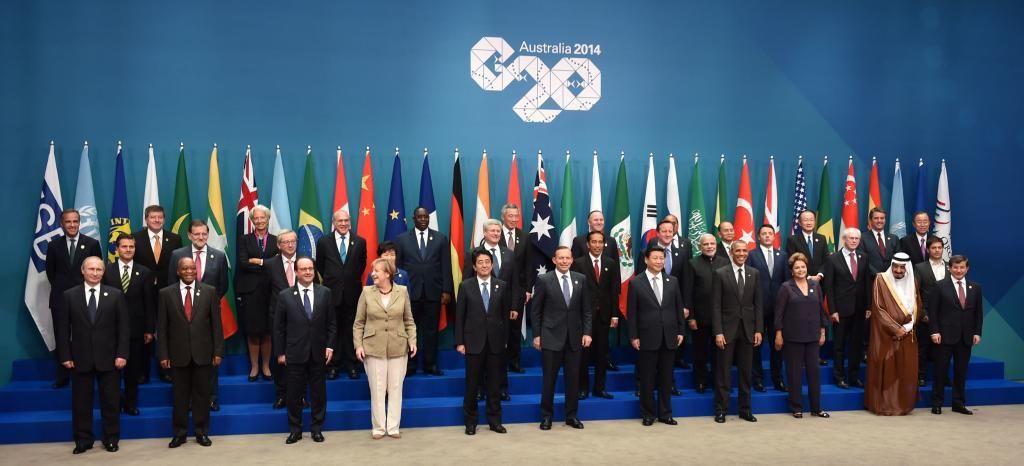
WTO Reform
The ministers reaffirmed their support for an open, transparent, equitable, inclusive, equitable, non-discriminatory, and rule-abiding multilateral trading system that revolves around the World Trade Organization (WTO). They emphasized the significance of special and differential treatment (S&DT) for developing nations, particularly Least Developed Countries.
They promised to support WTO reform efforts aimed at improving the organization's robustness, legitimacy, efficacy, and efficiency, while emphasizing the need for member-driven, inclusive, and transparent negotiations to achieve this goal.
Furthermore, they urged for the reinstatement of a fully operational dispute settlement system accessible to all members by 2024 and the prompt appointment of new Appellate Body Members.
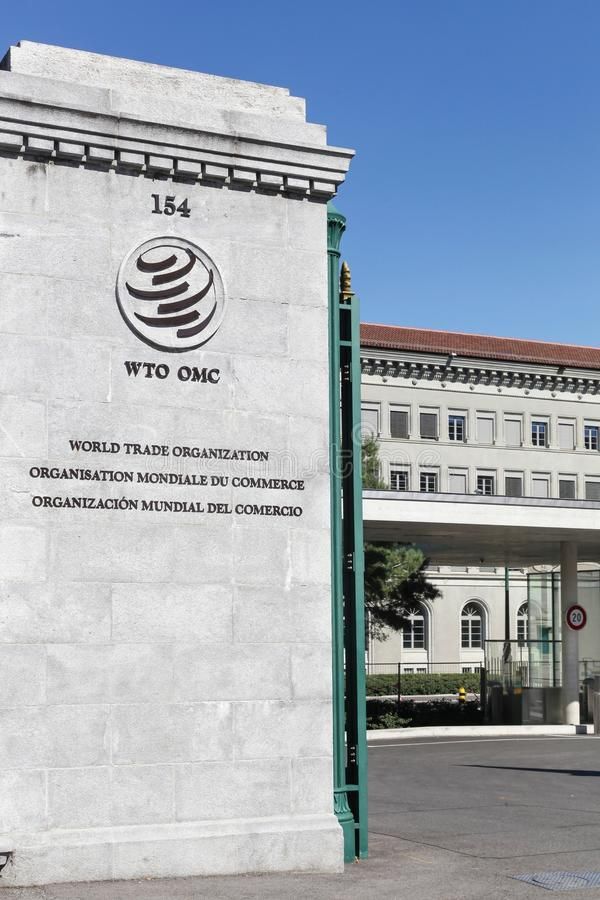
Global: Ukraine, Palestine's UN Membership, Iran, Africa
The situation in and around Ukraine, was the centre of discussion in the global arena, all nations acknowledged their respective national positions as expressed in various international forums, including the UN Security Council and UN General Assembly while emphasising the importance of peaceful resolution through mediation and good offices, highlighting the need for dialogue and diplomacy.
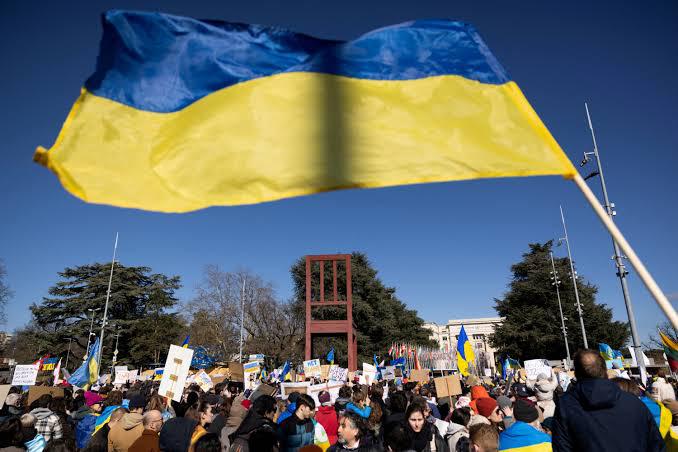
Ministers also voiced grave concerns about the continuing hostilities in the Middle East and North Africa (MENA) region. In order to address conflicts across the continent, the ministers emphasised the enduring significance of the idea "African solutions to African problems," which includes aiding the African Union (AU) and sub-regional organisations in promoting peace in the area. The ministers voiced serious concerns about the ongoing conflicts in hotspots such as the Horn of Africa, the Democratic Republic of the Congo (DRC), the Sahel region, and the Great Lakes region, with Sudan receiving special attention because of the rising tensions in the region. In this regard, they emphasized the importance of the Joint Statement released by the Special Envoys and Deputy Foreign Ministers of the BRICS countries.
Reiterating support for Palestine's full membership in the UN was one of the meeting's major outcomes. Based on pertinent UN resolutions and international law, the ministers reaffirmed their unwavering commitment to the two-state solution. According to this plan, Israel and Palestine would coexist peacefully inside the June 1967 borders as a sovereign, independent, and economically viable State of Palestine, with East Jerusalem serving as its capital.
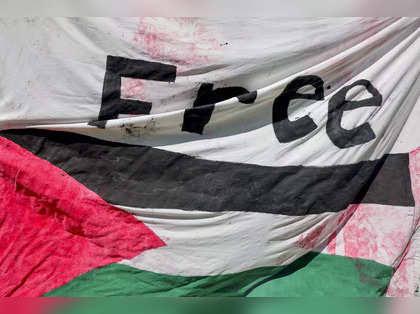
A minute of silence was observed by Russian Foreign Minister Sergey Lavrov to honour the recent deaths of Iranian Foreign Minister Hossein Amir-Abdollahian and former President Ebrahim Raisi in an aircraft crash. Minister Lavrov expressed his sympathies to the Iranian people as well as the victims' families, highlighting the value of compassion and unity during difficult times.
Overall, the BRICS Ministerial meeting served as a platform for collaborative dialogue and reaffirmed the member countries' commitment to addressing pressing economic to global challenges through cooperation, diplomacy, and adherence to international norms and principles.
(Inputs From agencies)
Photo: Multiple Sources
Ⓒ Copyright 2024. All Rights Reserved Powered by Vygr Media.

